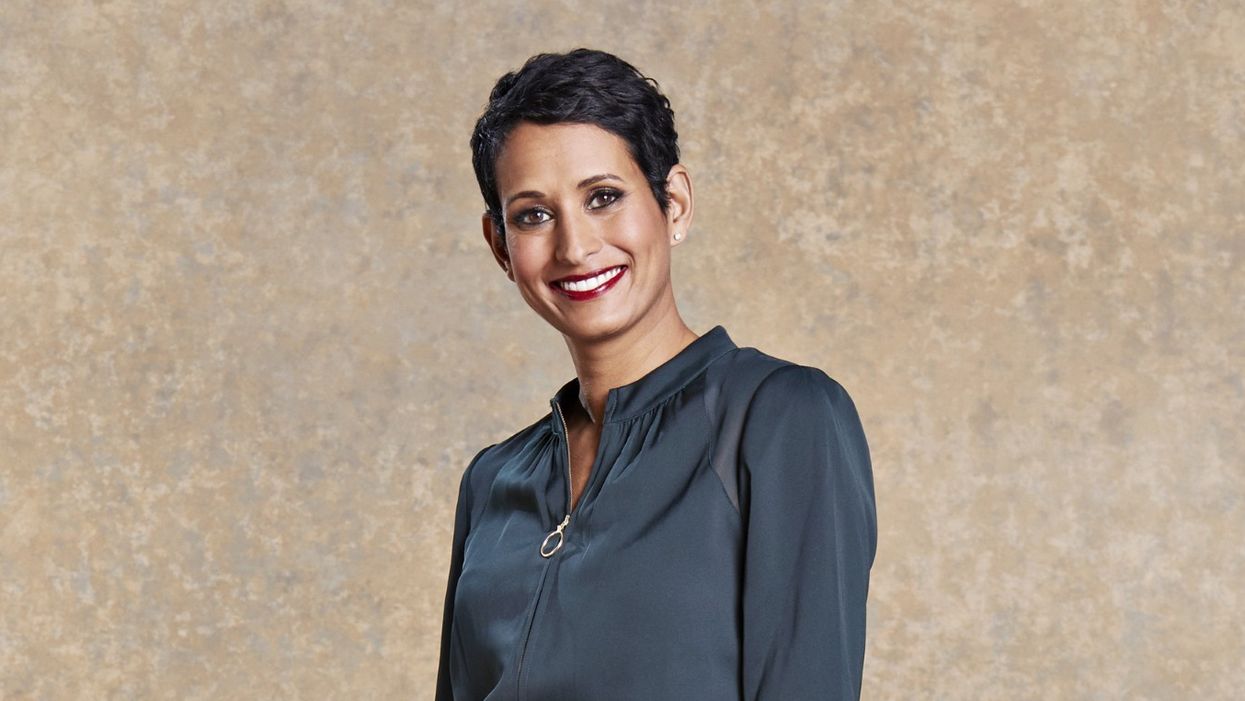WHEN broadcaster and journalist Naga Munchetty began speaking openly about her experiences with adenomyosis and debilitating menstrual pain, the response was overwhelming.
Emails and messages poured in from women who had endured years of dismissal, silence and shame when it came to their health. That outpouring became the driving force behind her new book, It’s Probably Nothing, which calls for women to be heard and to advocate for themselves in a medical system that has too often ignored them.
“For so long, so many women haven’t been listened to by the world of medicine,” Munchetty said. “I knew this from my own experience of not being given adequate pain relief, or waiting years for a diagnosis. My motivation was to help women and people who love women to advocate better for women’s health.”
The book blends Munchetty’s personal journey with the voices of other women who have faced similar struggles, alongside expert insights from medical professionals. Its purpose, she said, is clear: to empower people to fight for their health.
“We need to be unafraid of saying how we have been weakened by our symptoms,” the BBC presenter said.
“Too often, we try to keep afloat, keep our head above water, but we don’t want to seem weak. That needs to change.”
Munchetty’s candour is striking. She describes the shame of being told her excruciating periods were “just normal,” leaving her to feel weak and whiny for struggling.
“You might as well have told me people have heart attacks while I’m having a heart attack,” she said. “Debilitating pain is serious — it may not be lifelimiting, but it is life-impacting.”
Her determination to challenge that culture led to her giving evidence in parliament, contributing to what became a Women and Equalities Committee report, published in December 2024.
The report made headlines for its stark conclusion: medical misogyny exists.
For Munchetty, seeing that phrase in black and white was transformative. “It was almost self-affirming,” she said. “We now know it’s there, so we can challenge it. Women can say: I know my body, I know there’s not enough research, and I am entitled to push for answers.”
The parliamentary report went further than acknowledgement. It called for ring-fenced funding for women’s health hubs, better training for GPs, and greater investment in research into reproductive conditions like adenomyosis and endometriosis.
It highlighted how symptoms are routinely dismissed as “normal,” delaying diagnosis and disrupting women’s careers, education and daily lives. Munchetty wrote in her book — referencing the report — that medical misogyny is not about blaming individual doctors, but about challenging a system built on insufficient research into women’s bodies.
“It gives women the language and the confidence to not just be heard, but to insist on being taken seriously,” she wrote.
Her book also tackles the additional barriers faced by women from minority communities, who may be discouraged by stigma or embarrassment from speaking about menstruation or menopause. To them, Munchetty has a clear message: “You are so much more valuable than you realise. If you don’t prioritise your health, you are lessening your ability to hold up everyone around you.”
Those featured in the book are friends, colleagues, charities and everyday women who contributed their stories, many for the first time. “I was surprised at how many friends are in that book with such powerful experiences,” Munchetty said.
“It told me all the more that we’re not speaking about it, and that it is sadly so very common.”
At a launch event for the book, contributors, family and experts filled the room with what Munchetty describes as an “electric and inspiring atmosphere.”
She said, “It was full of joy, of women who felt safe to speak up and be heard. This is not a whiny book — it’s a positive book. People felt they were part of making things better, part of this women’s health revolution.”
For Munchetty, writing the book was exhausting, but transformative, she said.
“I never thought I’d be an author. I’m a journalist. But this is journalism — facilitating people’s stories to be told powerfully and truthfully. People trusted me, and I’m proud of that.”
And Munchetty’s aim is for the book to be a tool for change: arming women with the language, confidence and strategies to advocate for their health.
“It’s not easy to admit you need help, and it’s not instinctive for women to prioritise themselves,” she said. “But this book will help you do that. It’s the silent friend who has your back and gives you strength.”
It’s Probably Nothing - Critical Conversations on the Women’s Health Crisis is now available in all good bookshops




